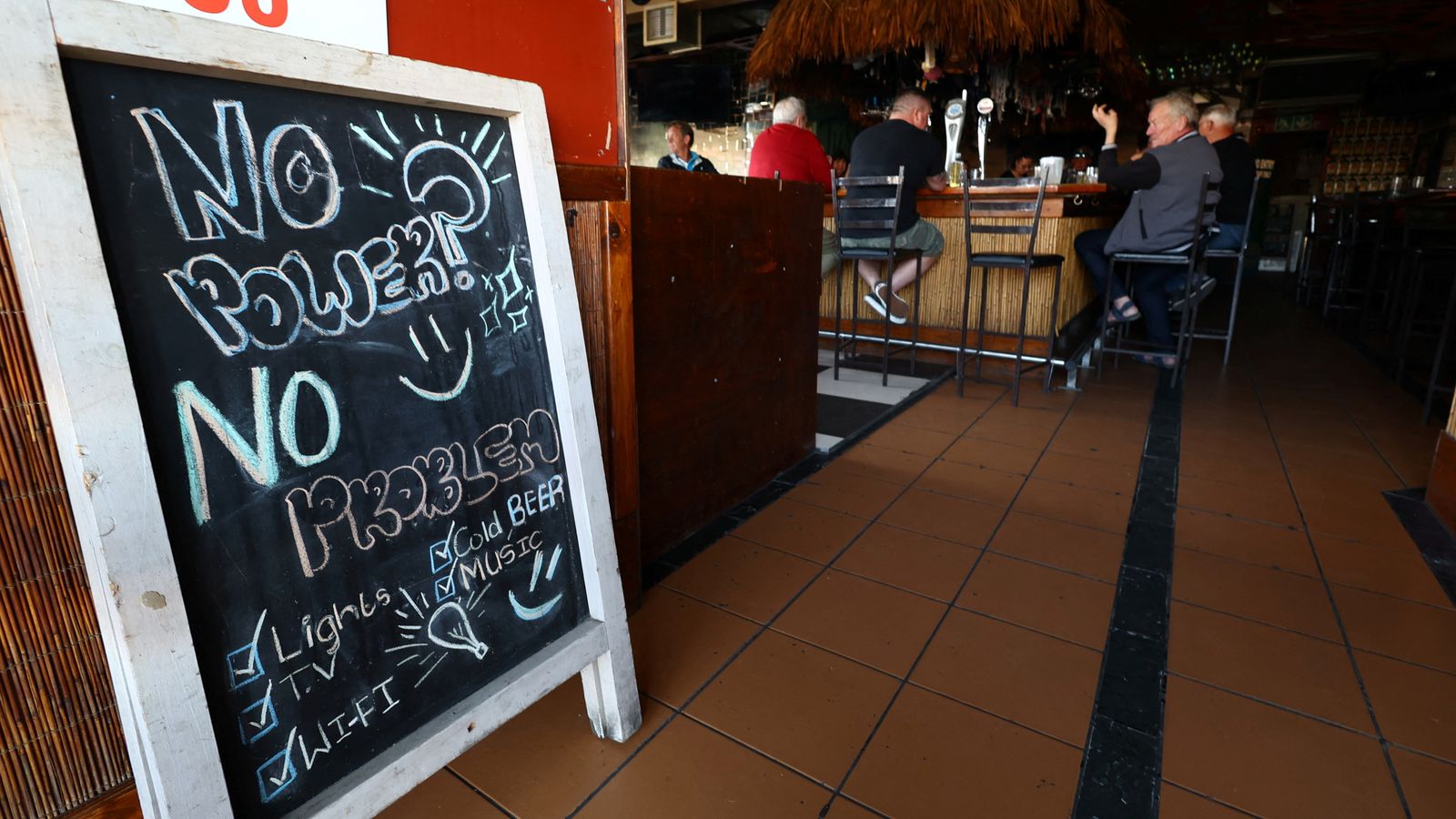South Africa is in the throes of an electricity crisis.
This year alone, the hours of power cuts across the country are equivalent to four full months.
According to the app that monitors electricity cuts, EskomSePush, that is 200% worse than any other year.
The state power utility, Eskom, blames an ageing fleet of coal-fired stations that consistently break down.
These stations generate little more than half their capacity – as demand for power consistently outstrips supply.
Shortages are expected to worsen as major units, like nuclear power station Koeberg, are taken offline for maintenance.
Eskom has warned South Africans to expect prolonged periods of power cuts in the foreseeable future and is currently implementing its highest levels of “load-shedding” – leaving residents without electricity for at least five hours a day.
Highest inner-city crime rates
In a country with some of the highest inner-city crime rates in the world, night-time power cuts have been detrimental to public safety.
“It’s dark and we’ve got more robberies that are happening, more burglaries that are happening.
“We’ve got more complaints that are just coming in. There’s so much unemployment going on at the moment, that it’s just chaotic.
“Anyone would do anything for anything. It makes it really really hard to keep it safe.
“So now load-shedding comes in and it’s just like 50% harder all of a sudden,” says Happy Raphela, a community patroller in Alexandra – one of Johannesburg’s more dangerous townships.
Here, the community has come together to patrol, to keep crime levels low.
Armed with only torches and walkie-talkies, they go street by street responding to complaints from residents.
“Our government only cares about our votes, but when it comes to power cuts they don’t care because they’re only living in their suburbs.
“I know some of them experience these power cuts but their houses are well-secured, they’ve got security guards.
“Here we don’t have security guards, we only have ourselves,” says Lefa Buthelezi, another patroller.
Read more:
Renewable energy offset global rise in fossil fuel use
‘Beginning of the end for fossil fuels’
Not even streetlights stay on
Generators and battery-backed alarm systems have kept those in wealthier areas safe.
But in Alexandra, assaults, and theft occur frequently in the dark hours of electricity cuts. Not even the streetlights stay on when the power is out.
Zothile Ncala has lived in Alexandra her whole life. The 34-year-old mother of three was attacked on her way home one evening during power cuts.
She was robbed of her phone and kicked in her pregnant stomach.
Click to subscribe to the Sky News ClimateCast wherever you get your podcasts
“That guy, he came at the back, the other one he was walking in front of me.
“I felt like I lost my baby. But I had to be strong to save my child, then that’s when I survived.
“We are praying for everything that’s happening in this country,” says Zothile.
But hope is waning as cuts worsen and communities experience the brunt of economic inequality.










